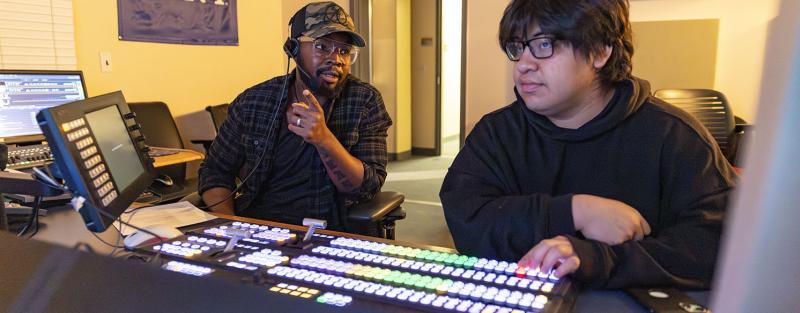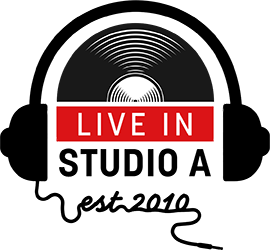Earn a Two-Year Television Production Degree at Aims
Turn your passion for visual storytelling into a career in television and video. Earn a degree in video production and develop professional skills to work in this dynamic and creative industry.
TV shows and videos touch our lives by creating a shared language through visual storytelling. TV and video news, entertainment and information are in high demand from viewers at home and on the go. Television networks, advertisers and businesses need skilled professionals to write, produce, film and edit video content for their audiences. Companies and nonprofits need professional quality training videos, commercials and informative video content.
Getting a two-year television production degree can help you build the technical and industry knowledge employers are seeking. With small class sizes and access to state-of-the-art equipment, gain the skills to take an idea from storyboard to final cut.
Learn how to operate television and video equipment, outline a scene, direct video shoots and complete post-production tasks. Practice the fundamentals with in-class learning and then apply those skills during an internship with a local station or organization, selected with the help of your instructor.
If you love telling stories and are interested in the technical aspects of television and video, this program will give you the skills you need to pursue a job in the industry.


